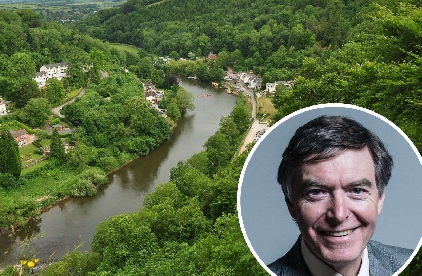
No more farming units that turn the river Wye into “pea soup” should be approved, an influential group of MPs has demanded.
The Environmental Audit Committee today published its Water Quality in Rivers report, which addresses at length the problem of phosphate pollution from farming entering the Wye.
“We didn’t want this to be all about sewage,” the committee’s chair, Ludlow MP Phillip Dunne said. “Diffuse agricultural pollution is as big a problem for rivers, if not bigger.”
The report cites an estimate by campaigners that there are now 20 million farmed birds in the Wye catchment and “millions more” in neighbouring catchments.
One academic told the committee that cattle and sheep are also significant sources of pollution in the river.
Spreading manure from poultry units on surrounding fields causes “a net annual gain of phosphorus accumulating in soils and river sediments in the Wye catchment”, the report says.
Environment Agency modelling has shown that farming now accounts for nearly two-thirds of the total pollution in the Wye and Lugg rivers, it adds.
Leader of Herefordshire Council David Hitchiner told the committee the neither Natural England nor the Environment Agency “have been forthcoming with a solution”, while Natural Resources Wales “has been even less effective in Wales, if this is possible”.
Meanwhile, Powys County Council “continues to consent intensive poultry units, without appropriate mitigation and despite what we now know”, he said.
An algal bloom in 2020 left the Wye “like pea soup”, and killing off plants and wildlife, the council’s submission said.
This failed to recover last year, leaving the river “devoid of the natural and diverse ecosystem that we deserve”.
The NFU Environment Forum’s chair Richard Bramley said any link between phosphorus pollution and the many poultry farms in the area was “not supported by recent and reliable evidence” from Natural Resources Wales.
However, the committee concluded that “intensive livestock and poultry farming appears to be putting enormous pressure on particular catchments, such as those feeding the river Wye”.
It recommended five-yearly appraisals of nutrient flows across the Wye and other major river catchments, which councils should then use to inform decisions on new housing developments and intensive livestock units, “taking into account their cumulative impact on river catchments”.
Councils should withhold planning permission for new intensive poultry or other intensive livestock units where these would exceed the “nutrient budget” of the wider catchment, the report said.
But it explained that addressing the river pollution problem “is hampered by outdated, underfunded and inadequate monitoring regimes”, which mean river users “cannot currently make informed decisions about when it is safe or not to use rivers”.
Mr Dunne said the Environment Agency “has been allowed to turn a blind eye to the problem, which we needs to be addressed within a timetable, and for the information to be made public in real-time”.
He acknowledged: “They have been hamstrung by funding cuts – we have called on the government to address this.
“It’s a timely moment for them to give more money for monitoring and enforcement, which they have been reluctant to do.”
But had high hopes that the government would now take heed of the report’s 82 conclusions and recommendations.
“The Government is obliged to respond to it,” he said. “Around 80 per cent of select committee recommendations are accepted.”
The MPs also demanded that:
The Government should prioritise protecting rivers such as the Wye and Teme on which wild salmon are found. “Pollution levels in these rivers must be reduced as a matter of urgency,” the report says.
Regulators and water companies must ensure rivers are also fit for bathing, with each water company area to have at least one “widely used” stretch of river for bathing by 2025 at the latest.
Water companies must “set a stretching timetable for progressive reductions” in the use of storm overflows from waste water treatment works, which cause raw sewage to enter rivers.
They and the Environment Agency must ensure that “easily accessible” information on such discharges is published “in as near to real-time as possible”.


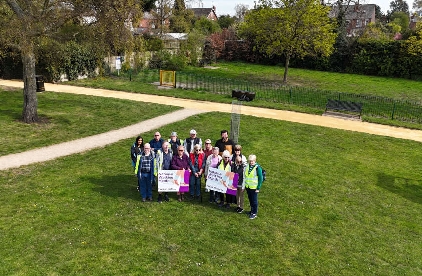 Get ready to walk this May and enjoy the 'Walk This May Challenge'
Get ready to walk this May and enjoy the 'Walk This May Challenge'
 New EV charging points planned for Hereford, Leominster and Kington
New EV charging points planned for Hereford, Leominster and Kington
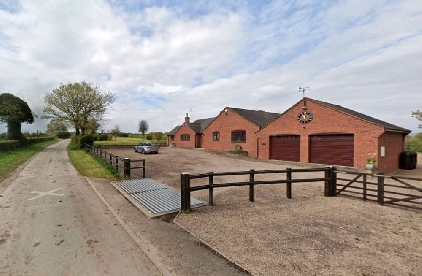 Non-farmers win fight to remove rule from house
Non-farmers win fight to remove rule from house
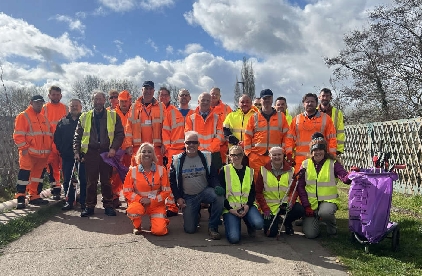 140 bags of litter collected during Great Herefordshire Spring Clean
140 bags of litter collected during Great Herefordshire Spring Clean
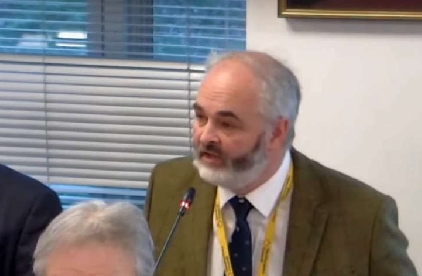 Councillor steps away from Tory group after gambling charge
Councillor steps away from Tory group after gambling charge
 Ten-home plan for former city-centre garage
Ten-home plan for former city-centre garage
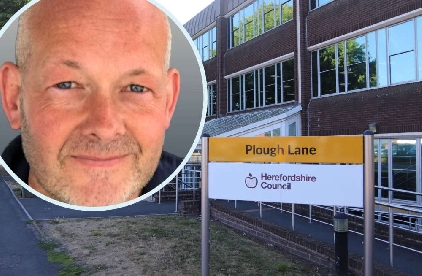 Dismissed children’s services chief was region’s top earner
Dismissed children’s services chief was region’s top earner
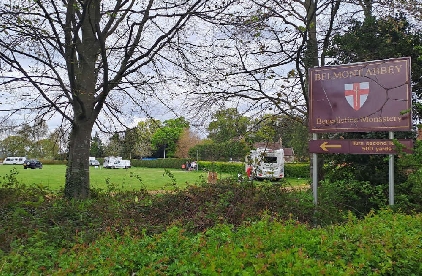 ‘Crime and anti-social behaviour’ reported at ‘illegal’ city traveller’s camps
‘Crime and anti-social behaviour’ reported at ‘illegal’ city traveller’s camps
